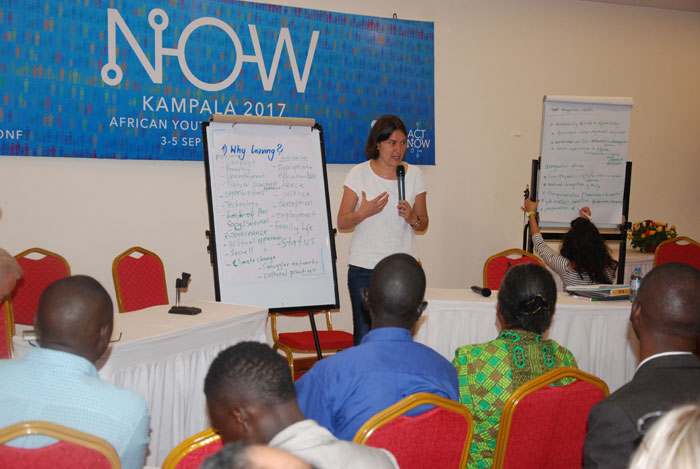
Empower and train survivors cooperate with law enforcement to help dismantle trafficking networks
Project Syndicate, 2019 | AGNES IGOYE | Human trafficking is on the rise, and a new report from the United Nations Office of Drugs and Crime reveals that perpetrators face “hardly any risk” of punishment. As long as impunity is the rule, the problem will continue to grow, and more people will continue to suffer at traffickers’ hands.
To be sure, most countries now have anti-trafficking laws, some with very stringent penalties. In my home country of Uganda, for example, the 2009 Prevention of Trafficking in Persons Act mandates a death sentence for aggravated trafficking in children. Globally, there are 117 signatories and 173 parties to the UN Palermo Protocol on trafficking.
Worldwide, however, 21 million people remain trapped in slavery, and millions of them are victims of human trafficking for labour and sexual exploitation. And, as the UN report emphasises, the number of convictions for human trafficking remains very low.
Change could come partly from a largely untapped source: survivors. Through my work with human-trafficking victims – including at the rehabilitation center that I founded – I have seen firsthand the great potential survivors have to help in the fight against human trafficking. That is why survivors should not just be supported with services; they should also be empowered to be part of the solution.
There are already attempts to do just that. In India, a “school for justice” – a partnership between Free A Girl Movement and a top Indian law school – was founded in 2017 to train human-trafficking survivors to become lawyers. More lawyers specialised in sexual-exploitation cases, it is hoped, will help increase conviction rates.
In the United States, the State Department’s Office to Monitor and Combat Trafficking in Persons has established an advisory council on human trafficking, which serves as a formal platform for survivors’ participation in policy discussions. While its impact has yet to become fully apparent, giving a voice to survivors in shaping policy already amounts to an important step forward.
 The Independent Uganda: You get the Truth we Pay the Price
The Independent Uganda: You get the Truth we Pay the Price



